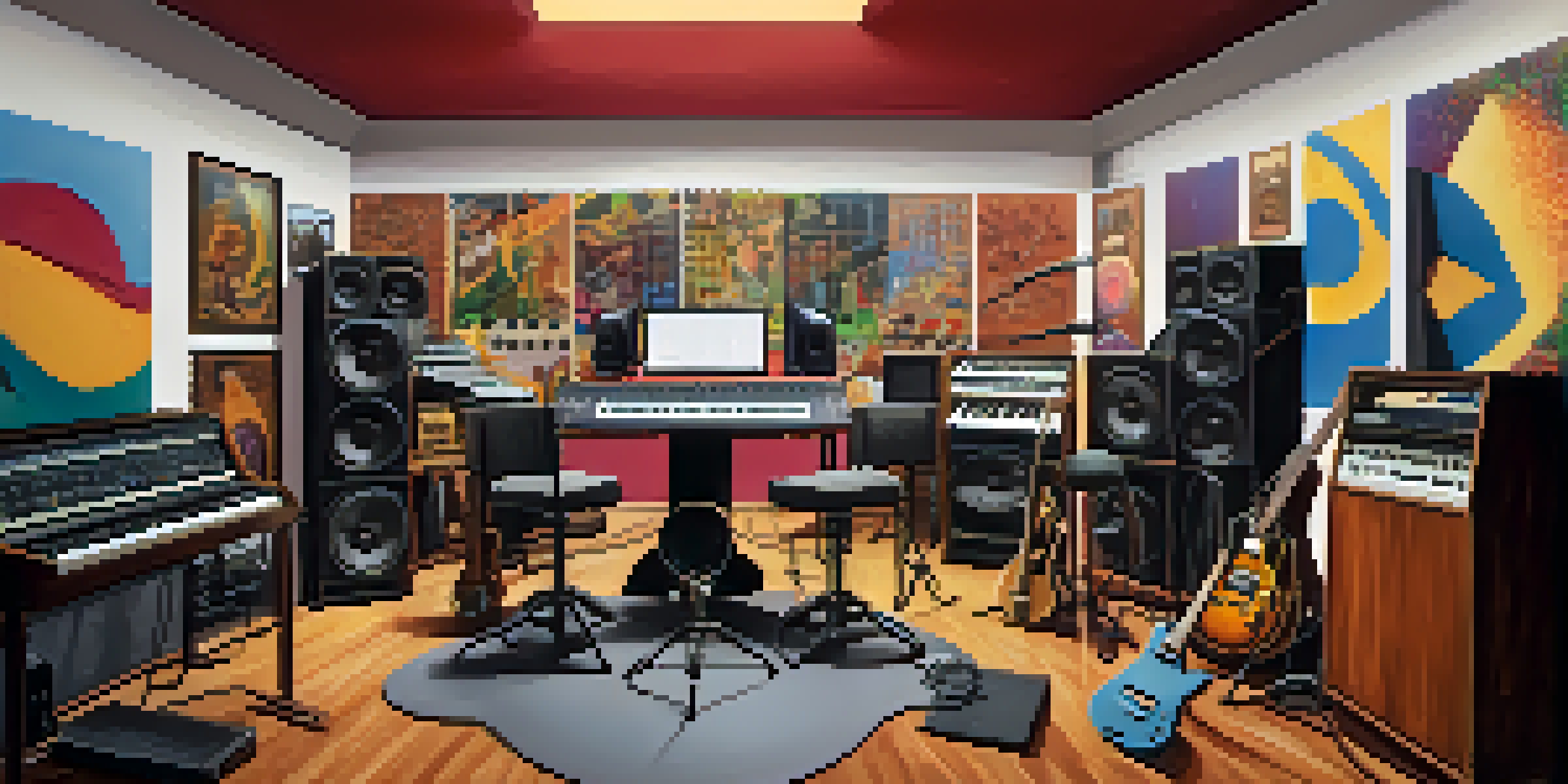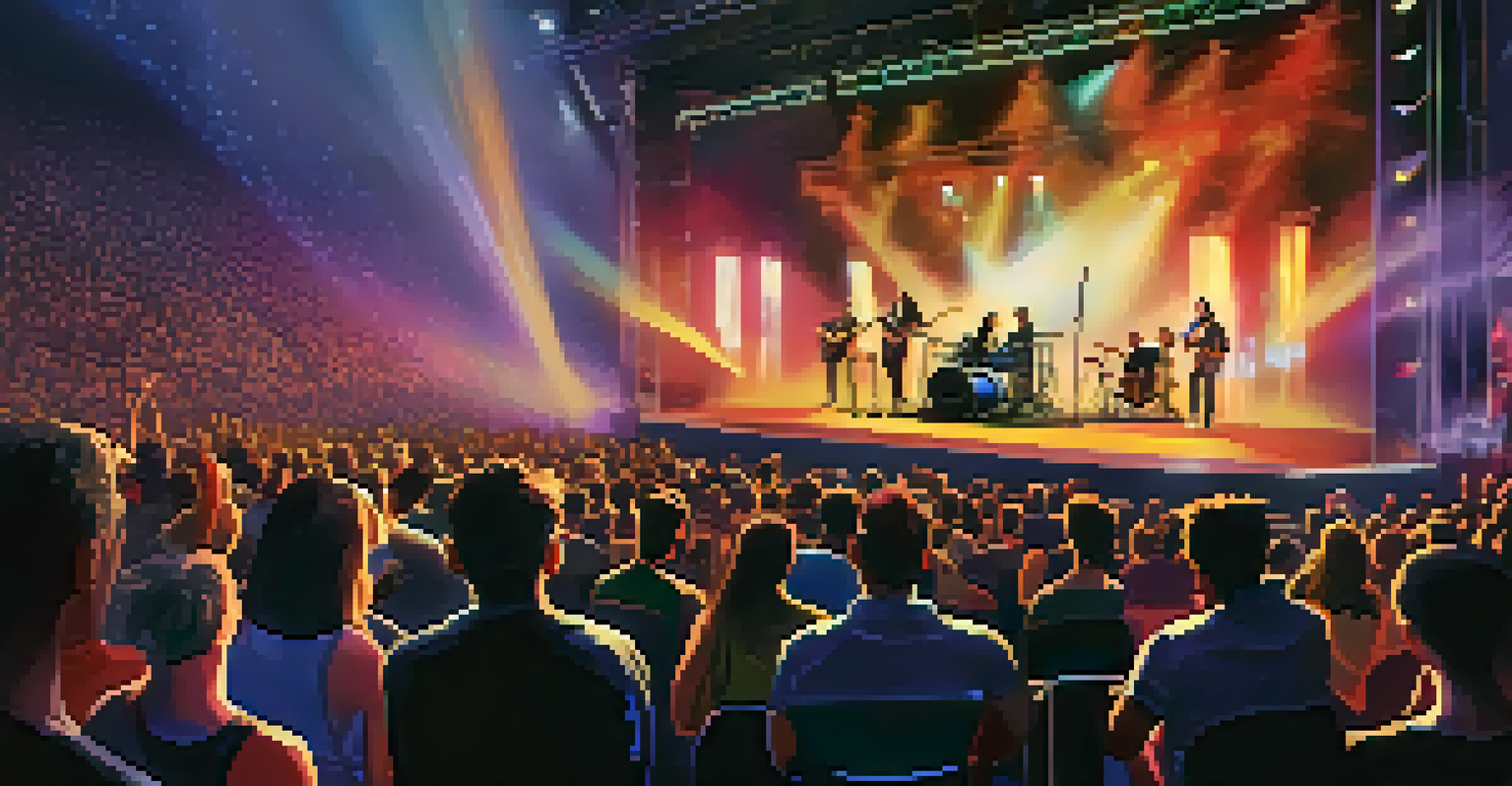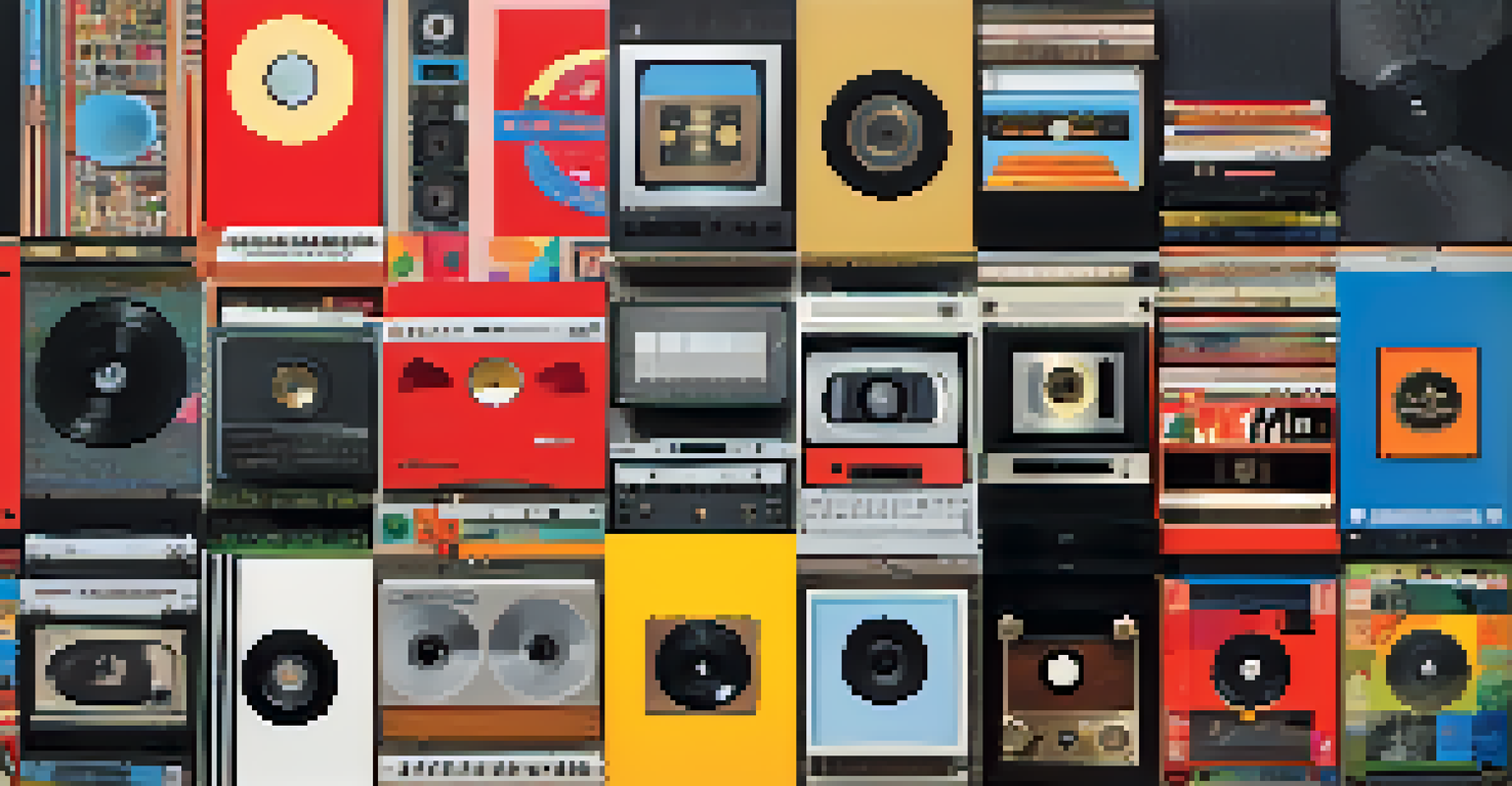Streaming and Hollywood: Shaping the Future of Global Music

The Rise of Streaming Platforms in Music Distribution
In recent years, streaming platforms like Spotify and Apple Music have revolutionized how we consume music. Gone are the days of purchasing physical albums or even digital downloads; now, a vast library of songs is just a click away. This shift has not only changed listening habits but has also altered how artists distribute their music effectively.
Music can change the world because it can change people.
Streaming allows musicians to reach a global audience without the traditional barriers of entry. Independent artists can upload their music and gain traction without needing a record label's backing. This democratization of music distribution is empowering creators and enabling diverse voices to emerge in the industry.
However, the financial implications of streaming are complex. While many listeners enjoy unlimited access for a monthly fee, artists often receive only a fraction of a cent per stream. This raises questions about fair compensation and sustainability for musicians striving to make a living in this new environment.
Hollywood's Influence on Music Trends
Hollywood has always had a significant impact on music, but streaming has amplified this connection. Movie soundtracks and trailers often dictate the popularity of certain songs, creating a symbiotic relationship between the two industries. For instance, a hit song featured in a blockbuster film can skyrocket in the charts nearly overnight.

This collaboration isn't just limited to soundtracks; artists are increasingly seeking placements in films and television shows to gain exposure. With streaming services producing original content, the opportunities for musicians to showcase their work are expanding. This trend highlights how narrative and sound can intertwine to create memorable experiences.
Streaming Transforms Music Access
Streaming platforms have democratized music distribution, allowing independent artists to reach global audiences without traditional barriers.
Moreover, the fusion of music and film is shaping new genres and styles. As filmmakers look for fresh sounds to engage audiences, genres like synthwave and lo-fi hip hop find their way into mainstream media, influencing both the music we hear and the stories we see on screen.
The Globalization of Music Through Streaming
Streaming has facilitated the globalization of music, allowing artists from different cultures to reach international audiences. Listeners can explore genres from around the world, from K-pop to Afrobeats, all within a single app. This exposure fosters a richer understanding and appreciation of diverse musical traditions.
The great thing about music is that it transcends language.
As a result, collaborations between artists from different countries are becoming more common. These partnerships not only blend musical styles but also create unique cultural exchanges. For example, the collaboration between Latin and American pop artists has led to chart-topping hits that showcase the beauty of cross-cultural creativity.
However, with this globalization comes the challenge of cultural appropriation. It's essential for artists and consumers alike to navigate these waters thoughtfully, appreciating the roots of a genre while celebrating its evolution. Acknowledging the origins of music can help maintain respect for its cultural significance.
Impact of Algorithms on Music Discovery
Algorithms play a crucial role in how listeners discover new music on streaming platforms. These sophisticated systems analyze user behavior and preferences to curate personalized playlists, making it easier to find songs that resonate. While this can enhance the listening experience, it also raises questions about the diversity of music exposure.
For instance, a listener might find themselves trapped in a 'filter bubble,' where they only hear music similar to what they've previously enjoyed. This can limit the discovery of emerging artists and genres, potentially stifling innovation in the music scene. It's essential for platforms to strike a balance between personalization and diversity.
Social Media Boosts Music Exposure
Social media platforms like TikTok have become crucial for music promotion, enabling viral trends that can catapult songs into the spotlight.
Additionally, artists must adapt their strategies to stand out in an algorithm-driven landscape. Engaging with fans on social media and creating unique content can help artists break through the noise and connect with new audiences. In this way, understanding algorithms becomes a vital part of modern music marketing.
The Role of Social Media in Music Promotion
Social media has become an indispensable tool for music promotion in the streaming era. Platforms like Instagram, TikTok, and Twitter allow artists to connect directly with fans, share their stories, and promote new releases. This level of engagement fosters a sense of community and loyalty among listeners.
TikTok, in particular, has transformed music marketing through viral challenges and trends. A catchy song can explode in popularity as users create content around it, leading to significant streaming spikes. This phenomenon illustrates how social media can serve as a launchpad for emerging artists.
However, the pressure to maintain an online presence can be overwhelming for musicians. Balancing the creative process with the demands of social media can detract from the artistry itself. It's crucial for artists to find a sustainable approach that allows them to promote their work while staying true to their creative vision.
Challenges Faced by Artists in the Streaming Era
While streaming platforms offer numerous opportunities, artists also face significant challenges in this digital landscape. One of the most pressing issues is the struggle for fair compensation, as many musicians find it difficult to make a sustainable income solely from streaming royalties. This financial strain can lead to burnout and disillusionment.
Moreover, the oversaturation of music on streaming services makes it harder for individual artists to stand out. With millions of songs available, capturing listeners' attention requires innovative marketing strategies and relentless promotion. Artists must constantly adapt to the rapidly changing industry to maintain relevance.
Challenges for Artists Persist
Despite the opportunities created by streaming, artists struggle with fair compensation and the pressure to constantly produce new content.
Additionally, the pressure to produce content frequently can compromise artistic integrity. Many artists feel compelled to release new music or engage with fans continuously, which can lead to a decline in creativity. Finding a balance between commercial success and artistic expression is one of the most challenging aspects of the modern music landscape.
The Future of Music: Merging Streaming and Hollywood
The future of music is likely to see an even deeper integration between streaming platforms and Hollywood. As both industries evolve, collaborations will become increasingly common, with artists contributing not just music but also creative input on film projects. This collaboration can lead to richer storytelling and more immersive experiences for audiences.
Moreover, the growth of virtual concerts and events will open new avenues for musicians to connect with fans. Streaming platforms are already experimenting with live performances, allowing fans worldwide to experience shows they might not otherwise attend. This could redefine how we think about live music in the digital age.

As technology continues to advance, we can expect to see innovative ways for artists to showcase their work and engage with audiences. From virtual reality concerts to interactive music videos, the possibilities are endless. The merging of streaming and Hollywood is poised to shape the future of global music in exciting and unpredictable ways.